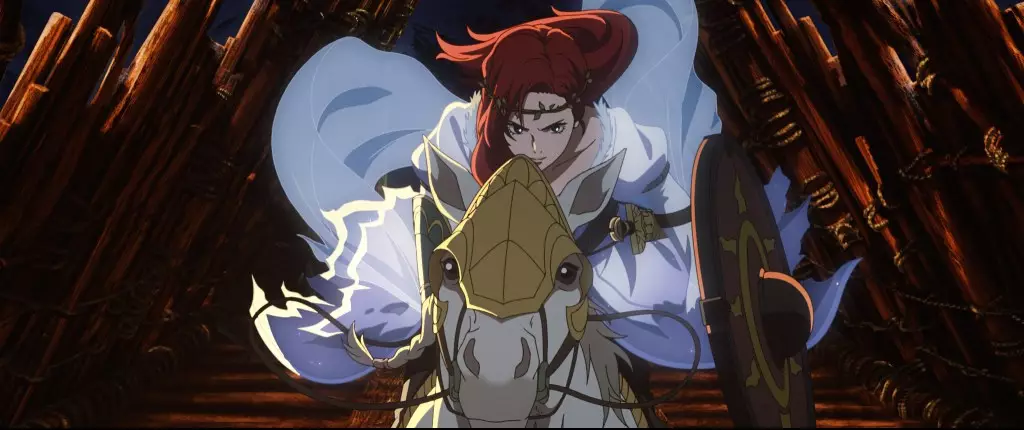New Line Cinema recently unveiled its latest anime feature film, *The Lord of the Rings: The War of the Rohirrim*, yet the initial reception was anything but favorable. Opening on December 13, the film struggled significantly, earning a meager $4.5 million during its debut weekend. This disappointing figure forced the studio to confine its theatrical run to a brief 14 days, with the movie already set for digital release on December 27. This rapid pivot to digital platforms such as Amazon Prime Video, Apple TV, and Fandango at Home indicates that the film’s box office performance is far from satisfactory.
Competing against major holiday releases like *Sonic the Hedgehog 3*, *Mufasa*, *Wicked*, and *Moana 2*, *The War of the Rohirrim* faces an uphill battle in maintaining theater presence. The film’s remarkable 72% drop in ticket sales during its second weekend, generating only $1.25 million for a total of $7.3 million, raises concerns about its longevity on the big screen. Despite the enthusiastic fandom that surrounds the *Lord of the Rings* franchise, the film’s underwhelming performance suggests a disconnect between audience expectations and the actual product delivered.
In an interesting twist, *War of the Rohirrim* was greenlit by the studio to ensure that rights to the franchise remained intact with Embracer Group. The urgency behind this decision stems from a contractual stipulation that necessitates producing a *Lord of the Rings* feature at least once every few years, with the clock ticking down since the last release, *The Hobbit: The Battle of the Five Armies*, a decade ago. While this might shed light on the motivations behind the movie’s production, it raises questions about the depth and quality of a project hurriedly crafted to meet legal requirements rather than fan expectations.
The Future of Middle-earth on Screen
Looking ahead, the *Lord of the Rings* saga is far from over. Warner Bros. is already working on a new project titled *Lord of the Rings: The Hunt for Gollum*, which presents an intriguing opportunity to revitalize the franchise. With industry veterans like Andy Serkis at the helm as both star and director, fans are hopeful that this upcoming delivery will align more closely with the high expectations set by the original films. Collaborators such as Fran Walsh and Philippa Boyens, who have played pivotal roles in past successes, add a layer of reassurance.
The mythos explored in *The War of the Rohirrim*—set 183 years prior to the original trilogy—revolves around the powerful lineage of Helm Hammerhand and the storied history of the House of Rohan. While the film’s box office struggles are evident, the cultural and narrative potential of this world remains intact. Viewers may still find value in the richly woven tales of heroism and honor that resonate throughout Tolkien’s lore, even if the cinematic representation falters.
While *The War of the Rohirrim* may have stumbled out of the gate, the legacy of Middle-earth continues to unfold, suggesting that the cinematic journey could still have many chapters left to be written.

